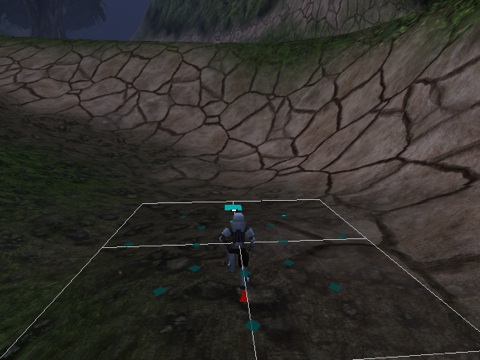Fully Automated Blending, Revisited
One of the things that makes the Locomotion System easy to setup and use is the fact that it automatically analyzes the velocities of all the input walk and run cycles and plots them into a velocity map. At runtime the system automatically assign appropriate blending weights to the animations, such that the closest neighboring animations (in terms of their velocities) get the highest blending weights.
While developing the system I tested this blending with as few as 2 sample animations (1 idle and 1 walk cycle) and with a much as 9 (1 idle, walk cycles in 4 directions, and run cycles in 4 directions).
A user in the Unity community, Chris Mansell Aka. Capnbubs, has now posted an early preview demo of a game he is developing, which utilizes the Locomotion System. In it, the avatar walks and runs with easy in a landscape with cliffs and hills.

Chris informs me about the animated character:
I've got walk and a run animations, each in 5 directions, three of them mirrored for moving backwards.
In other words, walk and run cycles in 8 directions, which makes for a total of 17 animations when also including the idle. The image above depicts a visualization of the velocities of the animations plotted into the velocity map.
I only ever tested with half that many animations myself, but the automated analysis and the runtime blending based on scattered data interpolation ensures that it still just works out of the box. Also, the built in ability to make an animation double as its backwards equivalent means that Chris effectively got 17 animations although he only made 11.
No comments:
Post a Comment